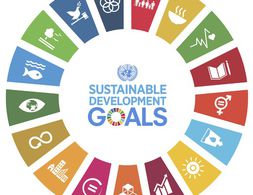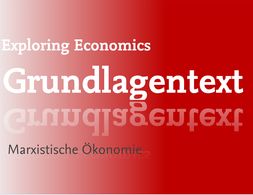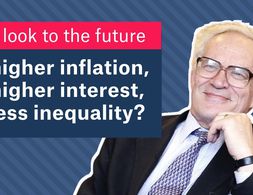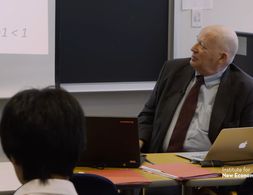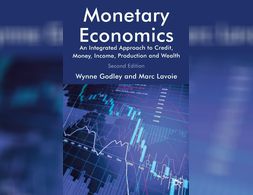285 Ergebnisse
Noneconomists often think that economists' approach to race is almost exclusively one of laissez-faire. Racism, Liberalism, and Economics argues that economists' ideas are more complicated.
Rethinking Regulation of International Finance encapsulates the most important aspects of the development and operation of the international financial system. This book questions the fundamental basis of the existing international financial architecture (soft law) and explores the need for a compliance-based model based on legitimacy of regulations and accountability of the regulatory bodies in international financial stability.
Volkswirtschaftslehre als Indoktrination und die Nicht Auswirkungen der Finanzkrise Helge Peukert Quelle van Treeck Till and Janina Urban Wirtschaft neu denken Blinde Flecken in der Lehrbuchökonomie iRights Media 2016 Das Buch kann hier bestellt werden http irights media de publikationen wirtschaft neu denken Rezensierte Bücher Mankiw N G Taylor M …
Jede Finanzkrise ist in erster Linie eine Schuldenkrise. Schuldner_innen nehmen zu viele Kredite auf, die sie dann nicht mehr bedienen können. Gläubiger_innen – vor allem Banken – müssen in der Folge ihre Forderungen abschreiben und vergeben weniger Kredite. Die Finanzkrise ist da.
Um eine solche Finanzkrise wirklich zu verstehen, muss man aber erst begreifen, wie Kredite eigentlich entstehen und wie genau Banken und andere Finanzinstitutionen funktionieren. Aufgabe einführender Bücher in die Volkswirtschaftslehre sollte sein, diese fundamentalen Zusammenhänge darzustellen. Leider stellen diese Bücher das Finanzsystem und die Kreditschöpfung meist falsch dar. Das erschwert sowohl die Analyse einer Finanzkrise als auch Wege zu ihrer Lösung zu finden.
Es ist immer noch zweifelhaft, ob Ökonom*innen mit ihrem Instrumentarium die nächste Wirtschaftskrise vorhersagen können.
Als erster Grund ist dafür der nicht-systemische Status von Krisen in Mainstream-Theorien zu nennen. Zweifelsohne entwickeln empirisch arbeitende Makroökonomen Warn-Indikatoren für Finanzkrisen (Schularick und Taylor 2012), es gibt auch makroökonomsiche Modelle, die Krisendynamiken aufgreifen (Kumhof et al. 2015) und Debatten im Mainstream der VWL über den richtigen Umgang mit der Mathematik (Romer ABC).
This essay deals with the concepts of Sustainable Land Management (SLM) and Land Degradation Neutrality (LDN).
Approaching the law of nature that determines all forms of economy. The bulk of economic theory addresses the economic process by setting out on a catalogue of aspects, seeking the laws in the aspects and hoping to get together a reliable view of the whole.
In this essay the authors take a look at how welfare could be provided in a degrowth society.
Michael Kalecki famously remarked “I have found out what economics is; it is the science of confusing stocks with flows”. Stock-Flow Consistent (SFC) models were developed precisely to address this kind of confusion. The basic intuition of SFC models is that the economy is built up as a set of intersecting balance sheets, where transactions between entities are called flows and the value of the assets/liabilities they hold are called stocks. Wages are a flow; bank deposits are a stock, and confusing the two directly is a category error. In this edition of the pluralist showcase I will first describe the logic of SFC models – which is worth exploring in depth – before discussing empirical calibration and applications of the models. Warning that there is a little more maths in this post than usual (i.e. some), but you should be able to skip those parts and still easily get the picture.
What influence do changes in tax policy or state decisions on expenditure have on economic growth? For decades, this question has been controversially debated.
In both economics textbooks and public perceptions central banks are a fact of life. On the wall of my A-level economics classroom there was the Will Rogers quote “there have been three great inventions since the beginning of time: fire, the wheel, and central banking”, summarising how many economists view the institution. There is a widespread belief that there is something different about money which calls for a central authority to manage its operation, a view shared even by staunch free marketeers such as Milton Friedman. This belief is not without justification, since money underpins every transaction in a way that apples do not, but we should always be careful not to take existing institutions for granted and central banking is no exception. In this post I will look at the idea of private or free banking, where banks compete (and cooperate) to issue their own currency.
Der Beitrag befasst sich mit der Schaffung finanztheoretischer Rahmenbedingungen hinsichtlich einer sozial-ökologischen Transformation der heutigen Wirtschaftsweise durch gezielt-effiziente Anpassung der Geschäftstätigkeit des globalen Bankensektors unter Betrachtung der resultierenden Folgewirkungen zwecks hinreichender Zielerfüllung im Sinne des Pariser Abkommens.
Wie erfüllen und finanzieren wir die Ziele des Pariser Abkommen / Climate Agreement (Social Development Goals (SDG) & Environmental Social Governance (ESG)) in nur noch 30 Jahren? Eine mögliche Antwort.
The module is designed to first present some of the main schools of thought from a historical and methodological perspective. Each week we explore and critically assess the main tenants of each school of thought. In the second part of the module we link history of economic thought and methodology to a specific and contemporary economic question. The second part allows you to engage with current economic issues with an awareness of methodology and methodological differences and with some knowledge of the history of economics.
Die marxistische Ökonomie stellt eine Wirtschaftstheorie dar, die im Wesentlichen auf Karl Marx Hauptwerk „Das Kapital“ beruht. Aufbauend auf den Ansätzen der klassischen Nationalökonomie werden hierbei die kapitalistischen Produktionsweisen sowie der Grundwiderspruch zwischen Kapital und Arbeit analysiert und kritisiert (vgl. Kirchgässner 1988, S. 128). Ausgehend von der marxistischen Kapitalismuskritik werden insbesondere das Wesen der kapitalistischen Ausbeutung und der Klassenkonflikt zwischen Bourgeoisie und Proletariat behandelt (vgl. Utz 1982, S. 22-23).
Der Fokus der Österreichischen Schule liegt auf der wirtschaftlichen Koordination von Angebots- und Nachfrageplänen zwischen Individuen. Konstitutiv sind u.a. der Subjektivismus, das Nutzenprinzip, Laissez-faire-Politik, fundamentale Unsicherheit sowie der Fokus auf den/die Unternehmer*in.
The Money View Symposium was hosted by YSI on 5-7 February, 2021. The Symposium showcased the work of scholars and practitioners that make use of the so-called Money View, ranging from economists to lawyers, politicians and social scientists at large. The symposium aims to illuminate the main tenets of the Money View and to demonstrate its juxtaposition to the mainstream.
Exploring Economics, an open-access e-learning platform, giving you the opportunity to discover & study a variety of economic theories, topics, and methods.
Understanding international trade is central to economics and is currently a hot political issue. It’s an area where popular perceptions of mainstream economics are low, since they have historically missed some important downsides of trade agreements, especially the hollowing out of former manufacturing hubs in the Western world. et economists have for long time had a theory of trade with an impressive amount of scientific clout behind it: the gravity trade model.
The Bank of England s introduction to money in the modern economy is composed by a video and a paper which work hand in hand In them money is presented as a form of debt issued by someone and spent as credit by someone else Furthermore the three main types …
Mark Carney explains how we have come to esteem financial value over human value and how we have gone from market economies to market societies, how economic theory foundation affect the society as a whole, how we understand our world today and ultimately how this affects our lives.
This episode from Odd Lost podcast with financial analyst Zoltan Pozsar features a discussion on the potential long-term financial effects of the Ukraine-Crisis on dollar and the global currency system centered around it.
Source image New Economic Thinking Youtube channel Some years ago in the aftermath of the great financial crisis GFC of the first decade of the twentieth century Paul Krugman famously remarked that most macroeconomics of the last thirty years was spectacularly useless at best and positively harmful at worst It …
This course attempts to explain the role and the importance of the financial system in the global economy. Rather than separating off the financial world from the rest of the economy, financial equilibrium is studied as an extension of economic equilibrium. The course also gives a picture of the kind of thinking and analysis done by hedge funds.
This workshop offers an introduction to Degrowth and Ecological Economics. It starts by surveying the socio-ecological crisis and its pseudo-solutions, and then moves to Ecological Macroeconomics as a relatively recent field of scholarship within Ecological Economics.
This syllabus provides an overview of the contents of the course "The Philosophy and Methodology of Economics" at the Duke University
This book challenges the mainstream paradigm, based on the inter-temporal optimisation of welfare by individual agents. It introduces a methodology for studying how institutions create flows of income, expenditure and production together with stocks of assets and liabilities, thereby determining how whole economies evolve through time.
Debunking Economics - Revised and Expanded Edition exposes what many non-economists may have suspected and a minority of economists have long known: that economic theory is not only unpalatable, but also plain wrong. When the original Debunking Economics was published back in 2001, the market economy seemed invincible, and conventional "neoclassical" economic theory basked in the limelight.
Mainstream economic theory has been increasingly questioned following the recent global financial crisis. Marc Lavoie shows how post-Keynesian theory can function as a coherent substitute by focusing on realistic assumptions and integrating the financial and real sides of the economy.
The U.S. economy today is confronted with the prospect of extended stagnation. This book explores why. Thomas I. Palley argues that the Great Recession and destruction of shared prosperity is due to flawed economic policy over the past thirty years.
In "The Money Problem, "Morgan Ricks argues for a reform of the American monetary system. Taking up foundational questions of monetary policy, he asks: how would we construct a monetary system if we were starting from scratch? What are the characteristics of a monetary instrument?
David Graeber introduces different concepts such as money and debt. He takes a historical and anthropological way of explaining the origin. This breaks with the mainstream explanation, which is used in many Economics textbooks, saying that a barter economy was before money arose.
In this ambitious and impressive new book, journalist Howard French seeks to excavate the long elided central importance of the African continent as the “linchpin of the machine of modernity.” In the story of modernity, he writes, the role of Africa is diminished, trivialized, and erased, and by filling in some gaps in this story, he retells the story of modernity.
Wir nutzen Cookies. Klicke auf "Akzeptieren" um uns dabei zu helfen, Exploring Economics immer besser zu machen!












